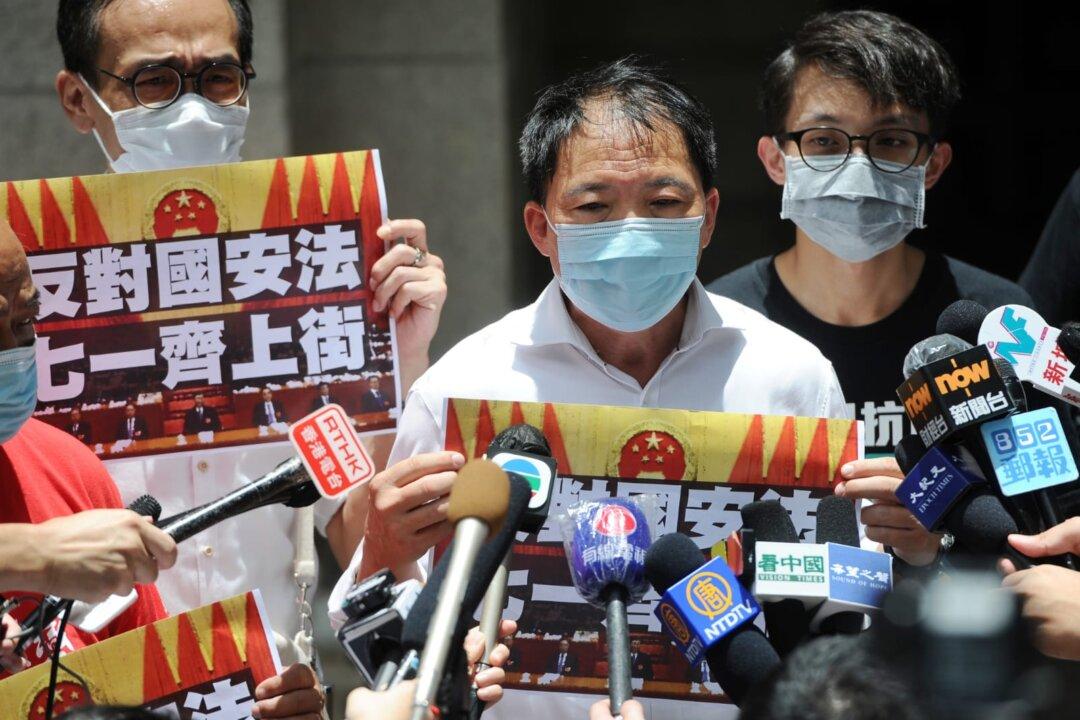In Hong Kong, local activists are calling on people to take to the streets on July 1 to protest against Beijing’s national security law despite a police ban on the gathering.
Several local activists including Figo Chan, vice convenor of local pro-democracy group Civil Human Rights Front (CHRF); Wu Chai-wai, chairman of Hong Kong’s Democratic Party; district councilors Tsang Kin-shing and Andy Chui; and lawmaker Eddie Chu, held a press conference at noon on Tuesday.




